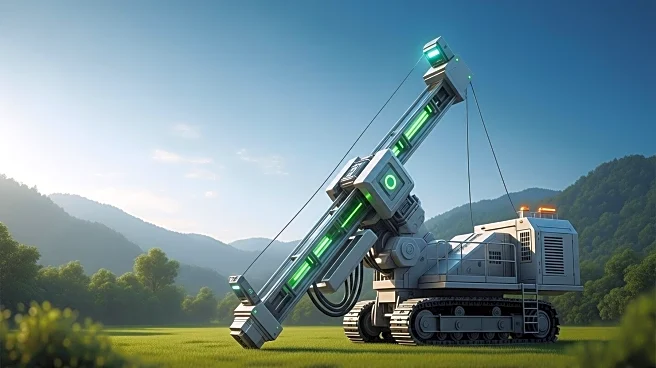What is the story about?
What's Happening?
Genomines, a France-based company, has raised $45 million in a Series A funding round to develop a bio-based alternative to traditional nickel mining. The company employs a process called phytoextraction, which uses genetically enhanced 'hyperaccumulator' plants to absorb heavy metals like nickel from the soil. These plants, such as alyssum and sunflowers, absorb metals through their roots and store them in their leaves. Once mature, the plants are harvested, dried, and burned to extract the metals from the resulting ash. This method is touted as being faster, cheaper, and more environmentally friendly than conventional mining techniques. Genomines aims to transition the mining industry towards smaller, plant-based operations, potentially rebalancing global mineral supply chains.
Why It's Important?
The development of eco-friendly mining techniques is crucial as the demand for battery-grade metals like nickel continues to rise, driven by the growth of electric vehicles and renewable energy technologies. Genomines' approach could significantly reduce the environmental impact of mining, which is traditionally associated with high emissions and ecological disruption. By offering a cost-competitive alternative, Genomines could attract investment from major industries, including automotive and battery manufacturing. The success of this initiative could lead to a shift in how metals are sourced, promoting sustainability and reducing reliance on large-scale mining operations.
What's Next?
Genomines plans to use the new funding to conduct more field tests and establish offtake agreements with partners. The company is exploring proof-of-concept projects with automakers like Hyundai Motor Group and Jaguar Land Rover, as well as battery manufacturers. If successful, this could pave the way for broader adoption of plant-based metal extraction methods, potentially transforming the mining industry.

















